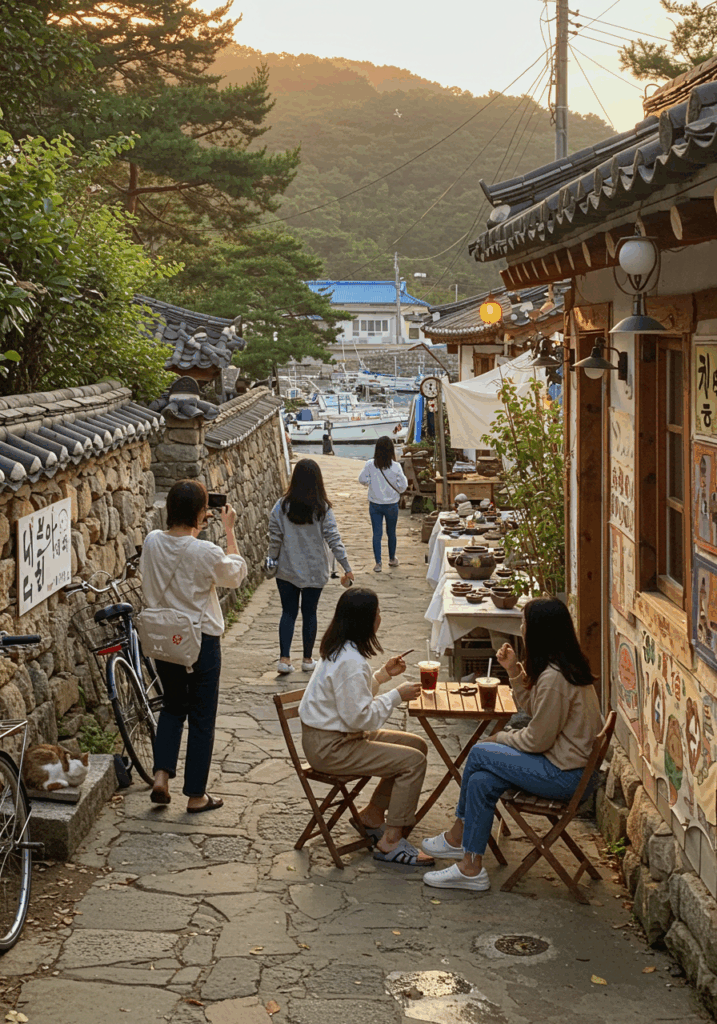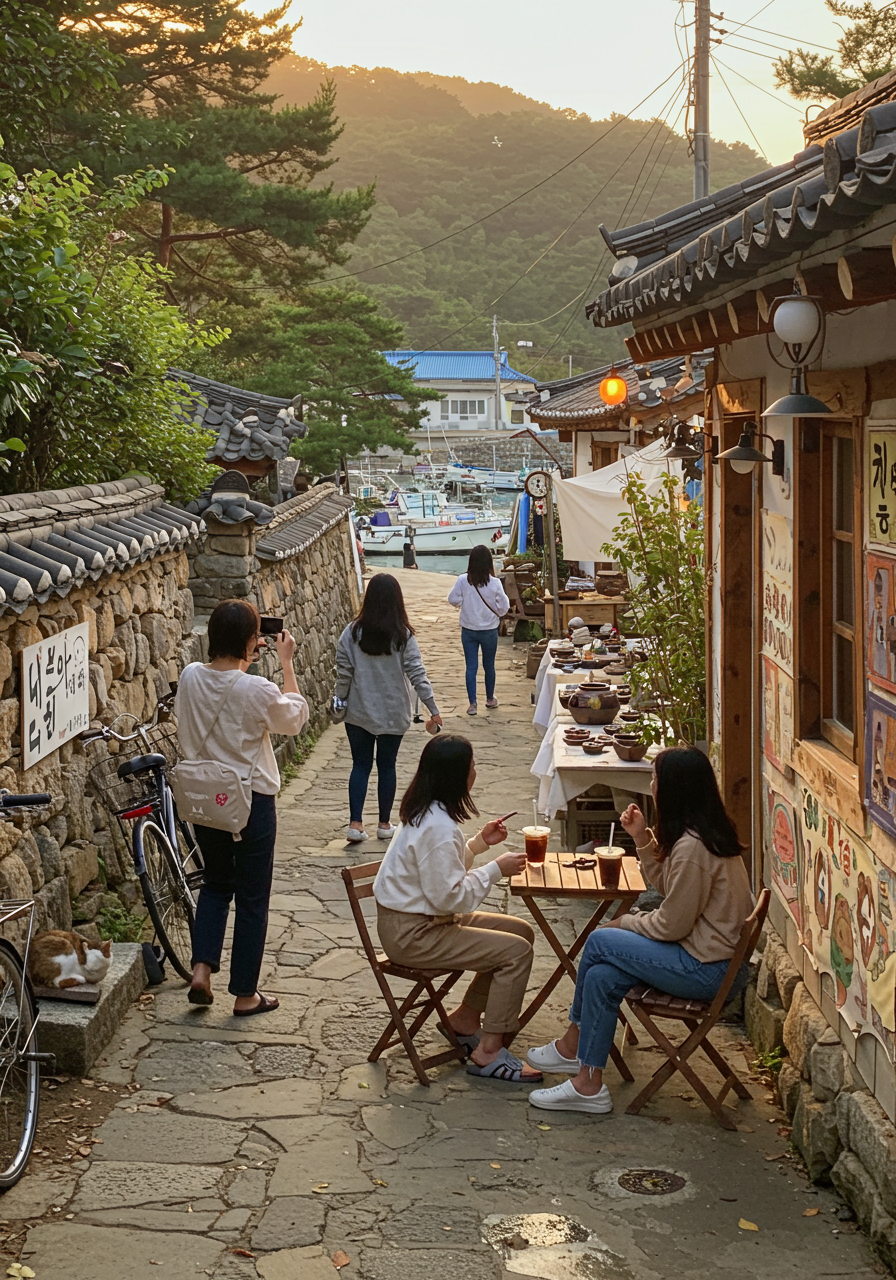
What Is Hyperlocal Travel?
The practice of travel used to involve extensive distances between different cities, countries or even continents. For members of Korea’s MZ Generation adventure exploration happens without the necessity of flying. People can now discover adventure in the hyperlocal travel movement which starts in their immediate neighborhood.
The main objective of hyperlocal travel involves discovering the local areas that most people overlook along with neighborhood attractions and unique local activities. Slowing down while paying attention leads to discovering joy in ordinary experiences. The Korean Millennials and Gen Z population adopts hyperlocal travel as more than a trend since it has become an integral part of their daily lives.
From Bucket Lists to Back Alleys
Young Koreans now prefer to discover small alleyways together with traditional markets and local bakeries and neighborhood art spaces instead of traditional tourist spots. The combination of old apartment building rooftops and unused railway paths and small five-table restaurants creates charm for these explorers.
Users can find their next micro-destination through the platforms Naver Blog, Kakao Map and Instagram hashtags. Users discover hidden locations through hashtags #동네여행 and #하이퍼로컬 and specific neighborhood names such as #망원동카페which direct them to places they had never seen before within their own city.
Why Hyperlocal? The Emotional Logic
Young Korean travelers select to remain in their nearby neighborhood what motivates them to do so?
People choose hyperlocal travel because modern life moves at an extremely rapid speed. Students and workers and their social commitments make extended vacations an unrealistic goal. The MZ Generation chooses meaningful depth over extended distances as their core value. The members of this generation seek genuine experiences instead of accumulating passport marks.
The experience of walking slowly through familiar grounds and writing letters by hand from a local stationery store and spending time in a riverside park creates deeper feelings of connection to the world. They serve as emotional comfort in a society that maintains high levels of pressure.

Eco-Friendly and Budget-Smart
Young Koreans find appeal in hyperlocal travel because it supports both sustainability practices and responsible financial management.
Traveling near home cuts down on environmental emissions while helping local businesses thrive and eliminating the expenses of accommodations and travel costs. Most Gen Z Koreans choose to spend their money on meaningful local workshops over expensive short-term foreign vacations which leave them tired.
The “Less is More” philosophy which dominates the MZ Generation matches the way this lifestyle operates.
Hyperlocal Travel as Identity and Creativity
Korean Gen Z members document their trips and curate their experiences before sharing them as personal stories. People use their hyperlocal trips to create short documentaries which they upload to YouTube and Instagram as their day’s experiences.
Some individuals create elaborate maps together with travel plans which highlight their local discoveries to enable others to discover hidden gems in their neighborhood. The practice of exploration and content sharing creates a feeling of territorial possession through the statement “This is my city and these are my discoveries.”
The practice serves as a peaceful opposition to standardized tourist experiences. Korean young people establish individualized travel experiences by moving just a few subway stops through their city while millions of people visit standard beaches and theme parks.
Conclusion
The true essence of hyperlocal travel consists of developing deep relationships rather than achieving distance. The MZ Generation in Korea demonstrates that wonderful experiences can exist within small geographical boundaries. A neighborhood walk and corner shop tea and unexpected alleyway mural can develop into significant life experiences.
Hyperlocal travel creates an opportunity for you to stop and experience both new and familiar things in a deep way until you fall in love with them again.
Cafe Hopping in Korea: Aesthetic Escapes of the MZ Generation
